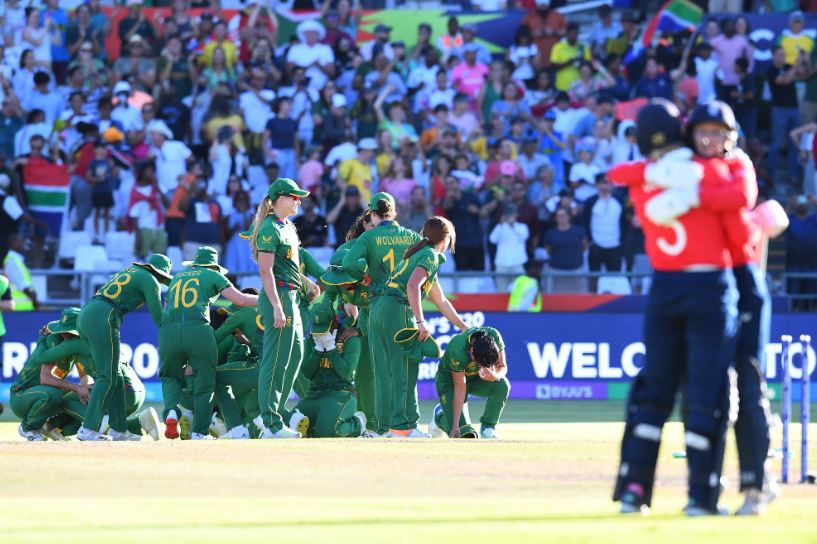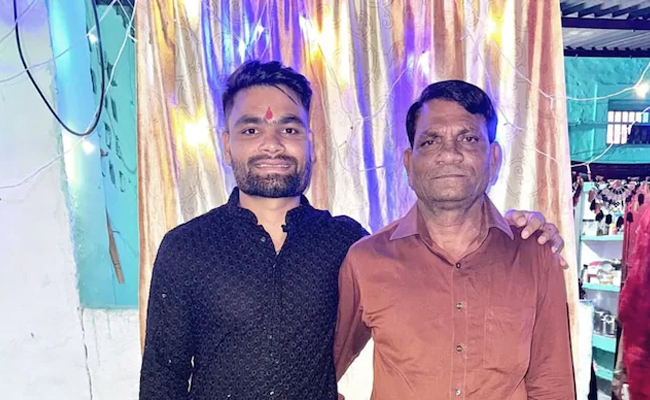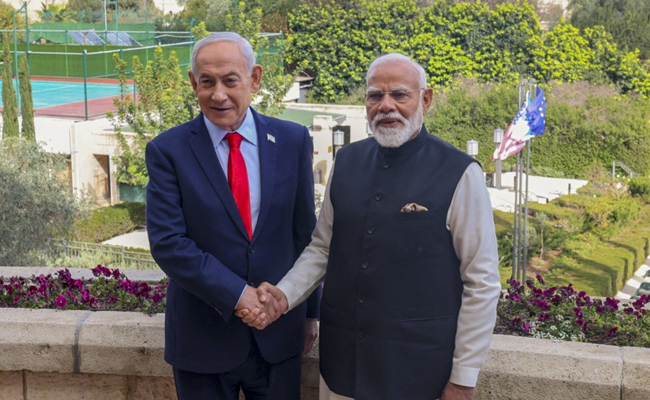Cape Town, Feb 24: Pacers Shabnim Ismail and Ayabonga Khaka shared seven wickets between them as South Africa staged a spectacular fight-back to stun England by six runs and enter their maiden Women's T20 World Cup final here on Friday.
Openers Laura Wolvaardt (53) and Tazmin Britz (68) struck entertaining half-centuries to take South Africa to 164 for four in the second semifinal at Newlands.
The game went down to the wire thanks to the efforts of Ismail (3/27) and Khaka (4/29), who both came up with momentum changing overs. The 2009 champions England ended with 158 for eight in 20 overs.
Danielle Wyatt (34) and Sophia Dunkley (28) made a flying start to take England to 53 for no loss in five overs.
Star pacer Ismail brought back South Africa in the game with a double strike in the sixth over. Both Dunkley and incoming batter Alice Capsey (0) were caught at midwicket by Britz. The one-handed catch to dismiss Capsey off a short ball stood out among the four catches she took in the game.
With 81 needed off last 60 balls and eight wickets in hand, England were expected to complete the task before South Africa made a roaring comeback, egged on by a loud home crowd.
Medium pacer Khaka turned the game on its head by striking thrice in the 18th over, sending back Amy Jones, Sophie Ecclestone and Katherine Sciver-Brunt.
With 13 needed off the last over and England still had hope with skipper Heather Knight in the middle. Ismail got rid of her to seal a special result for South Africa.
Earlier, the hosts' star batter Wolvaardt and Britz shared a 96-run stand to lay the groundwork for a competitive total.
England's lead spinner Sophie Ecclestone was the pick of the bowlers taking three wickets for 22 runs in four overs.
It was a second successive fifty from the 23-year-old Wolvaardt whose innings comprised five fours and a glorious off-drive than went all the way for a six.
Ecclestone was the one to provide the breakthrough for England as Wolvaardt, trying to play on the on side, got a leading edge and was caught by Charlotte Dean.
Britz changed gears following her opening partner's dismissal. Her back to straight sixes off leggie Sarah Glenn was the highlight of her innings.
Ecclestone pulled things back in the death overs with wickets of Chloe Tyron and Nadine de Klerk in a three run over before Marizanne Kapp got a much needed 23 not out off 13 balls to take the total beyond 160.
Katherine Sciver-Brunt's last over went for 18 runs and included a boundary off a waist high full toss.
Kapp ended the innings on a high with back to back fours.
South Africa were able to collect 66 runs off the last six overs.
What a feeling for South Africa 🇿🇦#ENGvSA | #T20WorldCup | #TurnItUp pic.twitter.com/GW8y1tdvAv
— ICC (@ICC) February 24, 2023
Let the Truth be known. If you read VB and like VB, please be a VB Supporter and Help us deliver the Truth to one and all.
Aligarh/Noid (PTI): Indian cricketer Rinku Singh's father, Khanchand Singh, passed away at a hospital in Greater Noida early Friday following a prolonged illness, family sources said.
Dr. Sunil Kumar, spokesperson of Yatharth Hospital in Greater Noida, where the cricketer's father was admitted, said Khanchand Singh was battling liver cancer.
"His condition had deteriorated significantly in recent days, following which he had been admitted to the hospital on February 21. He was placed on ventilator support and breathed his last early this morning," Kumar said.
Due to his father's critical condition, Rinku had to return home midway through the T20 World Cup. However, he rejoined the Indian team ahead of the match against Zimbabwe on February 26. He had also recently visited Noida to meet his father.
Rinku's former coach, Masood Amini, told PTI Videos in Aligarh that Khanchand Singh had been battling advanced-stage liver cancer and was in the terminal phase of the illness.
"He had been unwell for quite some time. He was suffering from liver cancer. For the past three to four days, he was on ventilator support," Amini said.
Amini said Rinku's father worked tirelessly to support his family and educate his children.
"He started out working as a gas cylinder delivery man and worked very hard to raise his family," he said.
The 28-year-old cricketer, a resident of Aligarh district in Uttar Pradesh, credits much of his success to his father. Khanchand Singh, who worked in gas cylinder distribution in Aligarh, supported his son's dream of becoming a cricketer despitefacing financial hardships.
The family said Khanchand Singh's last rites will be performed in Aligarh, and Rinku will attend the funeral.





